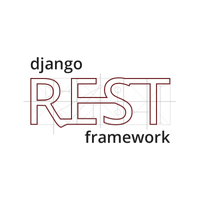Need advice about which tool to choose?Ask the StackShare community!
Get Advice from developers at your company using StackShare Enterprise. Sign up for StackShare Enterprise.
Learn MorePros of Django
Pros of GraPHP
Pros of Symfony
Pros of Django
- Rapid development670
- Open source487
- Great community424
- Easy to learn379
- Mvc276
- Beautiful code232
- Elegant223
- Free206
- Great packages203
- Great libraries194
- Comes with auth and crud admin panel79
- Restful79
- Powerful78
- Great documentation75
- Great for web71
- Python57
- Great orm43
- Great for api41
- All included32
- Fast29
- Web Apps25
- Easy setup23
- Clean23
- Used by top startups21
- Sexy19
- ORM19
- The Django community15
- Allows for very rapid development with great libraries14
- Convention over configuration14
- King of backend world11
- Full stack10
- Great MVC and templating engine10
- Fast prototyping8
- Mvt8
- Easy to develop end to end AI Models7
- Batteries included7
- Its elegant and practical7
- Have not found anything that it can't do6
- Very quick to get something up and running6
- Cross-Platform6
- Easy Structure , useful inbuilt library5
- Great peformance5
- Zero code burden to change databases5
- Python community5
- Map4
- Just the right level of abstraction4
- Easy to change database manager4
- Modular4
- Many libraries4
- Easy to use4
- Easy4
- Full-Text Search4
- Scaffold3
- Fastapi1
- Built in common security1
- Scalable1
- Great default admin panel1
- Node js1
- Gigante ta1
- Rails0
Pros of GraPHP
Be the first to leave a pro
Pros of Symfony
- Open source177
- Php149
- Community130
- Dependency injection129
- Professional122
- Doctrine80
- Organized75
- Modular architecture71
- Smart programming47
- Solid45
- Documentation20
- LTS releases15
- Easy to Learn10
- Decoupled framework components9
- Robust9
- Service container8
- Bundle8
- Good practices guideline8
- Simple7
- Powerful7
- Flexible6
Sign up to add or upvote prosMake informed product decisions
Cons of Django
Cons of GraPHP
Cons of Symfony
Cons of Django
- Underpowered templating26
- Autoreload restarts whole server22
- Underpowered ORM22
- URL dispatcher ignores HTTP method15
- Internal subcomponents coupling10
- Not nodejs8
- Configuration hell8
- Admin7
- Not as clean and nice documentation like Laravel5
- Python4
- Not typed3
- Bloated admin panel included3
- Overwhelming folder structure2
- InEffective Multithreading2
- Not type safe1
Cons of GraPHP
Be the first to leave a con
Cons of Symfony
- Too many dependency10
- Lot of config files8
- YMAL4
- Feature creep3
- Bloated1
Sign up to add or upvote consMake informed product decisions
- No public GitHub repository available -
What is Django?
Django is a high-level Python Web framework that encourages rapid development and clean, pragmatic design.
What is GraPHP?
The goal of this project is to build a lightweight web framework with a graph DB abstraction. It should be very easy to create the graph schema with no knowledge of of how the data is stored. Also, the schema should be incredibly flexible so you should never need migrations when adding new models (nodes), connections (edges), or data that lives in nodes.
What is Symfony?
It is written with speed and flexibility in mind. It allows developers to build better and easy to maintain websites with PHP..
Need advice about which tool to choose?Ask the StackShare community!
Jobs that mention Django, GraPHP, and Symfony as a desired skillset
What companies use Django?
What companies use GraPHP?
What companies use Symfony?
What companies use GraPHP?
No companies found
Sign up to get full access to all the companiesMake informed product decisions
What tools integrate with Django?
What tools integrate with GraPHP?
What tools integrate with Symfony?
What tools integrate with GraPHP?
Sign up to get full access to all the tool integrationsMake informed product decisions
Blog Posts
What are some alternatives to Django, GraPHP, and Symfony?
Flask
Flask is intended for getting started very quickly and was developed with best intentions in mind.
Node.js
Node.js uses an event-driven, non-blocking I/O model that makes it lightweight and efficient, perfect for data-intensive real-time applications that run across distributed devices.
Rails
Rails is a web-application framework that includes everything needed to create database-backed web applications according to the Model-View-Controller (MVC) pattern.
Laravel
It is a web application framework with expressive, elegant syntax. It attempts to take the pain out of development by easing common tasks used in the majority of web projects, such as authentication, routing, sessions, and caching.
PHP
Fast, flexible and pragmatic, PHP powers everything from your blog to the most popular websites in the world.













































